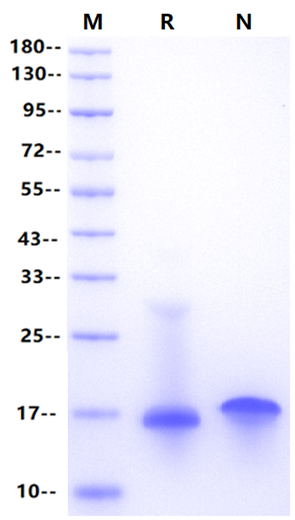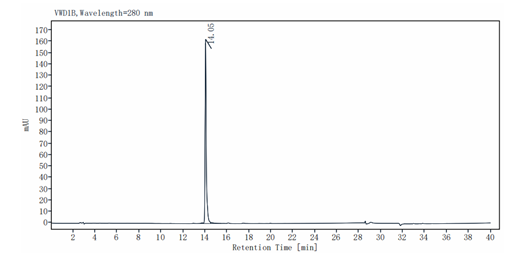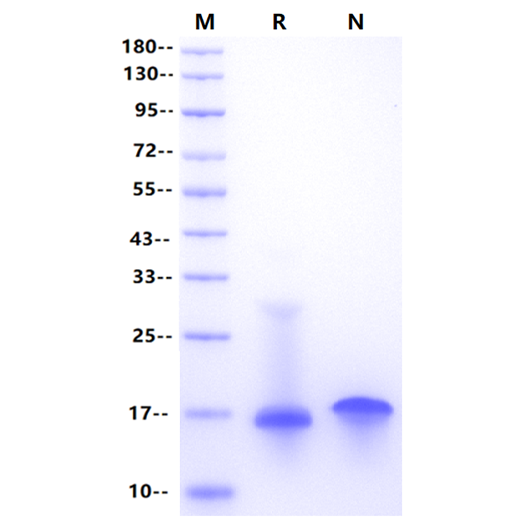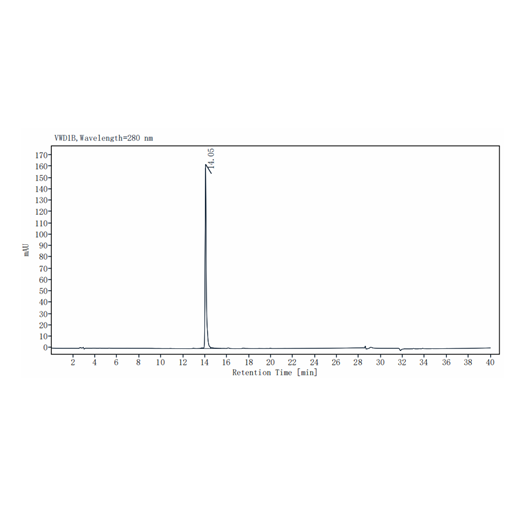1μg (R: reducing condition, N: non-reducing condition).
Product Details
Product Details
Product Specification
| Species | Mouse |
| Synonyms | C-X-C motif chemokine 9, MIG, CXCL9, CMK, SCYB9 |
| Accession | P18340 |
| Amino Acid Sequence | Thr22-Thr126 |
| Expression System | E.coli |
| Molecular Weight | 17kDa |
| Purity | >95% by SDS-PAGE |
| Endotoxin | <0.1EU/μg |
| Conjugation | Unconjugated |
| Tag | No Tag |
| Physical Appearance | Lyophilized Powder |
| Storage Buffer | PBS, pH7.4 |
| Reconstitution | Reconstitute at 0.1-1 mg/ml according to the size in ultrapure water after rapid centrifugation. |
| Stability & Storage | · 12 months from date of receipt, lyophilized powder stored at -20 to -80℃. · 3 months, -20 to -80℃ under sterile conditions after reconstitution. · 1 week, 2 to 8℃ under sterile conditions after reconstitution. · Please avoid repeated freeze-thaw cycles. |
| Reference | 1. J Immunol. 2004 Jun 15;172(12):7417-24. |
Background
Monokine induced by IFN-gamma (MIG; CXC chemokine ligand (CXCL)9) is important in T lymphocyte recruitment in organ transplantation. MIG/CXCL9 stimulate CD4 lymphocyte proliferation in a MHC class II-mismatched MLR and also increased the number of IFN-gamma-producing CD4 lymphocytes in ELISPOT. Neutralization of MIG/CXCL9 in MLR reduced T lymphocyte proliferation, IFN-gamma-inducible protein 10/CXCL10 and IFN-inducible T cell alpha chemoattractant/CXCL11 had similar effects on T lymphocyte proliferation. MIG/CXCL9 stimulated T lymphocyte proliferation in MHC class I and total MHC-mismatched MLRs. Neutralization of CXCR3 reduced MIG/CXCL9-induced T lymphocyte proliferation and the number of IFN-gamma-positive spots on ELISPOT. The proliferative effects of MIG/CXCL9 were mediated via an IL-2-independent pathway and were controlled by IFN-gamma.
Picture
Picture
SDS-PAGE

RP-HPLC





